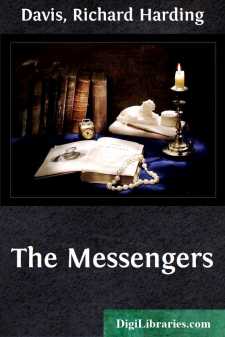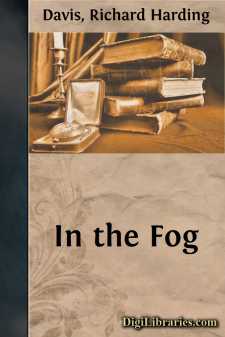Categories
- Antiques & Collectibles 13
- Architecture 36
- Art 48
- Bibles 22
- Biography & Autobiography 816
- Body, Mind & Spirit 145
- Business & Economics 28
- Children's Books 18
- Children's Fiction 14
- Computers 4
- Cooking 94
- Crafts & Hobbies 4
- Drama 346
- Education 58
- Family & Relationships 59
- Fiction 11831
- Foreign Language Study 3
- Games 19
- Gardening 17
- Health & Fitness 34
- History 1378
- House & Home 1
- Humor 147
- Juvenile Fiction 1873
- Juvenile Nonfiction 202
- Language Arts & Disciplines 89
- Law 16
- Literary Collections 686
- Literary Criticism 179
- Mathematics 13
- Medical 41
- Music 40
- Nature 179
- Non-Classifiable 1768
- Performing Arts 7
- Periodicals 1453
- Philosophy 66
- Photography 2
- Poetry 897
- Political Science 203
- Psychology 45
- Reference 154
- Religion 516
- Science 126
- Self-Help 86
- Social Science 82
- Sports & Recreation 34
- Study Aids 3
- Technology & Engineering 59
- Transportation 23
- Travel 463
- True Crime 29
Our website is made possible by displaying online advertisements to our visitors.
Please consider supporting us by disabling your ad blocker.
The Messengers
Description:
Excerpt
When Ainsley first moved to Lone Lake Farm all of his friends asked him the same question. They wanted to know, if the farmer who sold it to him had abandoned it as worthless, how one of the idle rich, who could not distinguish a plough from a harrow, hoped to make it pay? His answer was that he had not purchased the farm as a means of getting richer by honest toil, but as a retreat from the world and as a test of true friendship. He argued that the people he knew accepted his hospitality at Sherry's because, in any event, they themselves would be dining within a taxicab fare of the same place. But if to see him they travelled all the way to Lone Lake Farm, he might feel assured that they were friends indeed.
Lone Lake Farm was spread over many acres of rocky ravine and forest, at a point where Connecticut approaches New York, and between it and the nearest railroad station stretched six miles of an execrable wood road. In this wilderness, directly upon the lonely lake, and at a spot equally distant from each of his boundary lines, Ainsley built himself a red brick house. Here, in solitude, he exiled himself; ostensibly to become a gentleman farmer; in reality to wait until Polly Kirkland had made up her mind to marry him.
Lone Lake, which gave the farm its name, was a pond hardly larger than a city block. It was fed by hidden springs, and fringed about with reeds and cat-tails, stunted willows and shivering birch. From its surface jutted points of the same rock that had made farming unremunerative, and to these miniature promontories and islands Ainsley, in keeping with a fancied resemblance, gave such names as the Needles, St. Helena, the Isle of Pines. From the edge of the pond that was farther from the house rose a high hill, heavily wooded. At its base, oak and chestnut trees spread their branches over the water, and when the air was still were so clearly reflected in the pond that the leaves seemed to float upon the surface. To the smiling expanse of the farm the lake was what the eye is to the human countenance. The oaks were its eyebrows, the fringe of reeds its lashes, and, in changing mood, it flashed with happiness or brooded in sombre melancholy. For Ainsley it held a deep attraction. Through the summer evenings, as the sun set, he would sit on the brick terrace and watch the fish leaping, and listen to the venerable bull-frogs croaking false alarms of rain. Indeed, after he met Polly Kirkland, staring moodily at the lake became his favorite form of exercise. With a number of other men, Ainsley was very much in love with Miss Kirkland, and unprejudiced friends thought that if she were to choose any of her devotees, Ainsley should be that one. Ainsley heartily agreed in this opinion, but in persuading Miss Kirkland to share it he had not been successful. This was partly his own fault; for when he dared to compare what she meant to him with what he had to offer her he became a mass of sodden humility. Could he have known how much Polly Kirkland envied and admired his depth of feeling, entirely apart from the fact that she herself inspired that feeling, how greatly she wished to care for him in the way he cared for her, life, even alone in the silences of Lone Lake, would have been a beautiful and blessed thing. But he was so sure she was the most charming and most wonderful girl in all the world, and he an unworthy and despicable being, that when the lady demurred, he faltered, and his pleading, at least to his own ears, carried no conviction.
"When one thinks of being married," said Polly Kirkland gently, "it isn't a question of the man you can live with, but the man you can't live without. And I am sorry, but I've not found that man."
"I suppose," returned Ainsley gloomily, "that my not being able to live without you doesn't affect the question in the least?"
"You HAVE lived without me," Miss Kirkland pointed out reproachfully, "for thirty years."
"Lived!" almost shouted Ainsley....












